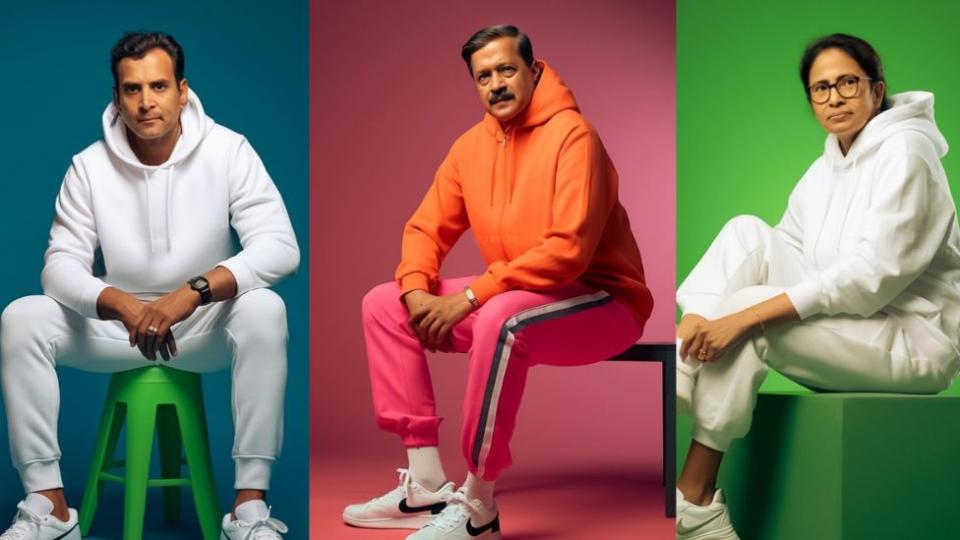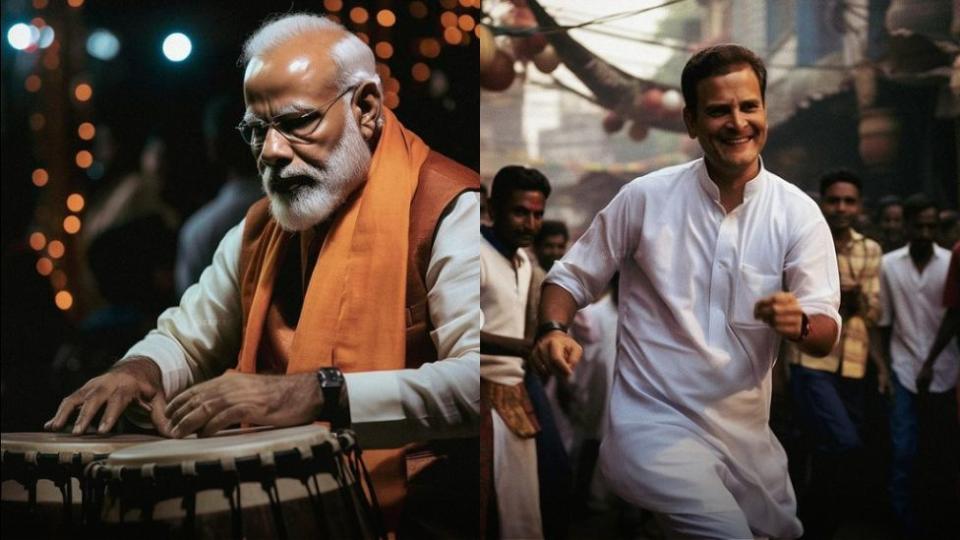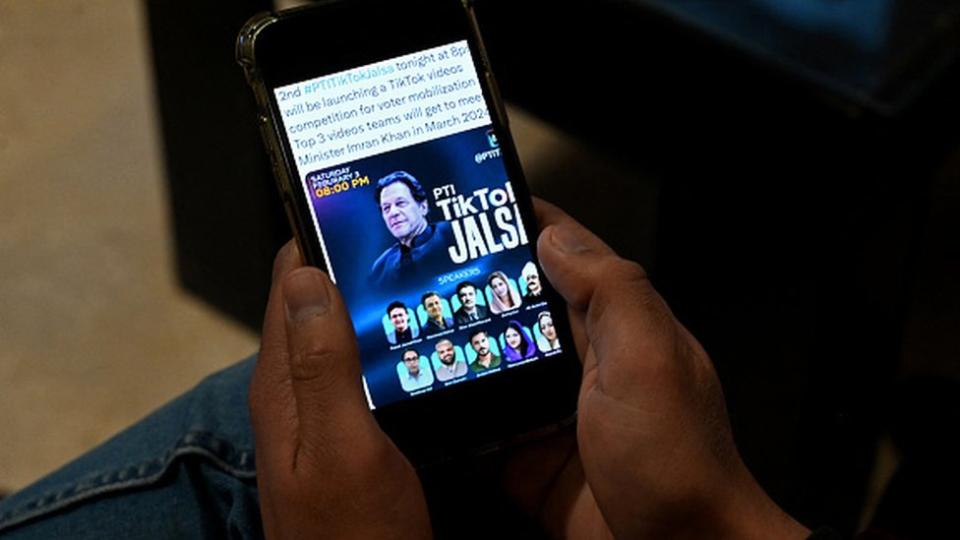In November final 12 months, Muralikrishnan Chinnadurai was watching a livestream of a Tamil-language occasion within the UK when he seen one thing odd.
A girl launched as Duwaraka, daughter of Velupillai Prabhakaran, the Tamil Tiger militant chief, was giving a speech.
The issue was that Duwaraka had died greater than a decade earlier, in an airstrike in 2009 through the closing days of the Sri Lankan civil conflict. The then-23-year-old’s physique was by no means discovered.
And now, right here she was – seemingly a middle-aged girl – exhorting Tamilians the world over to take ahead the political wrestle for his or her freedom.
Mr Chinnadurai, a fact-checker within the southern Indian state of Tamil Nadu, watched the video carefully, seen glitches within the video and shortly pinned it right down to being a determine generated by synthetic intelligence (AI).
The potential issues have been instantly clear to Mr Chinnadurai: “That is an emotive situation within the state [Tamil Nadu] and with elections across the nook, the misinformation may shortly unfold.”
As India goes to the polls, it’s unattainable to keep away from the wealth of AI-generated content material being created – from marketing campaign movies, to personalised audio messages in a spread of Indian languages, and even automated calls made to voters in a candidate’s voice.
Content material creators like Shahid Sheikh have even had enjoyable utilizing AI instruments to point out Indian politicians in avatars we have not seen them in earlier than: carrying athleisure, taking part in music and dancing.
However because the instruments get extra subtle, specialists fear about its implications in relation to making pretend information seem actual.
“Rumours have all the time been part of electioneering. [But] within the age of social media, it will possibly unfold like wildfire,” says SY Qureshi, the nation’s former chief election commissioner.
“It could really set the nation on hearth.”

India’s political events will not be the primary on this planet to make the most of latest developments in AI. Simply over the border in Pakistan, it allowed jailed politician Imran Khan to deal with a rally.
And in India itself, Prime Minister Narendra Modi has additionally already made one of the best of the rising expertise to marketing campaign successfully – addressing an viewers in Hindi which, through the use of the government-created AI device Bhashini, was then translated into Tamil in actual time.
Nevertheless it will also be used to control phrases and messages.
Final month, two viral movies confirmed Bollywood stars Ranveer Singh and Aamir Khan campaigning for the opposition Congress occasion. Each filed police complaints saying these have been deepfakes, made with out their consent.
Then, on 29 April, Prime Minister Modi raised issues about AI getting used to distort speeches by senior leaders of the ruling occasion, together with him.
The following day, police arrested two individuals, one every from the opposition Aam Aadmi Get together (AAP) and the Congress occasion, in reference to a doctored video of Residence Minister Amit Shah.
Mr Modi’s Bharatiya Janata Get together (BJP) has additionally confronted comparable accusations from opposition leaders within the nation.

The issue is – regardless of the arrests – there isn’t any complete regulation in place, in keeping with specialists.
Which implies “in the event you’re caught doing one thing incorrect, then there could be a slap in your wrist at finest”, in keeping with Srinivas Kodali, a knowledge and safety researcher.
Within the absence of regulation, creators informed the BBC they must depend on private ethics to determine the form of work they select to do or not do.
The BBC realized that, among the many requests from politicians, have been pornographic imagery and morphing of movies and audios of their rivals to break their fame.
“I used to be as soon as requested to make an authentic appear like a deepfake as a result of the unique video, if shared extensively, would make the politician look unhealthy,” reveals Divyendra Singh Jadoun.
“So his workforce needed me to create a deepfake that they may go off as the unique.”
Mr Jadoun, founding father of The Indian Deepfaker (TID), which created instruments to assist individuals use open supply AI software program to create marketing campaign materials for Indian politicians, insists on placing disclaimers on something he makes so it’s clear it’s not actual.
However it’s nonetheless exhausting to regulate.

Mr Sheikh, who works with a advertising and marketing company within the jap state of West Bengal, has seen his work shared with out permission or credit score by politicians or political pages on social media.
“One politician used a picture I created of Mr Modi with out context and with out mentioning it was created utilizing AI,” he says.
And it’s now really easy to create a deepfake that anybody can do it.
“What used to take us seven or eight days to create can now be accomplished in three minutes,” Mr Jadoun explains. “You simply have to have a pc.”
Certainly, the BBC acquired a first-hand take a look at simply how simple it’s to create a pretend telephone name between two individuals – on this case, me and the previous US president.
Regardless of the dangers, India had initially stated it wasn’t contemplating a legislation for AI. This March, nonetheless, it sprung into motion after a furore over Google’s Gemini chatbot response to a question asking: “Is Modi a fascist?”
Rajeev Chandrasekhar, the nation’s junior data expertise minister, stated it had violated the nation’s IT legal guidelines.
Since then, the Indian authorities has requested tech corporations to get its express permission earlier than publicly launching “unreliable” or “under-tested” generative AI fashions or instruments. It has additionally warned towards responses by these instruments that “threaten the integrity of the electoral course of”.
Nevertheless it is not sufficient: fact-checkers say maintaining with debunking such content material is an uphill job, significantly through the elections when misinformation hits a peak.
“Data travels on the velocity of 100km per hour,” says Mr Chinnadurai, who runs a media watchdog in Tamil Nadu. “The debunked data we disseminate will go at 20km per hour.”
And these fakes are even making their method into the mainstream media, says Mr Kodali. Regardless of this, the “election fee is publicly silent on AI”.
“There aren’t any guidelines at giant,” Mr Kodali says. “They’re letting the tech business self-regulate as a substitute of developing with precise laws.”
There is not a foolproof resolution in sight, specialists say.
“However [for now] if motion is taken towards individuals forwarding fakes, it would scare others towards sharing unverified data,” says Mr Qureshi.




.jpg)



